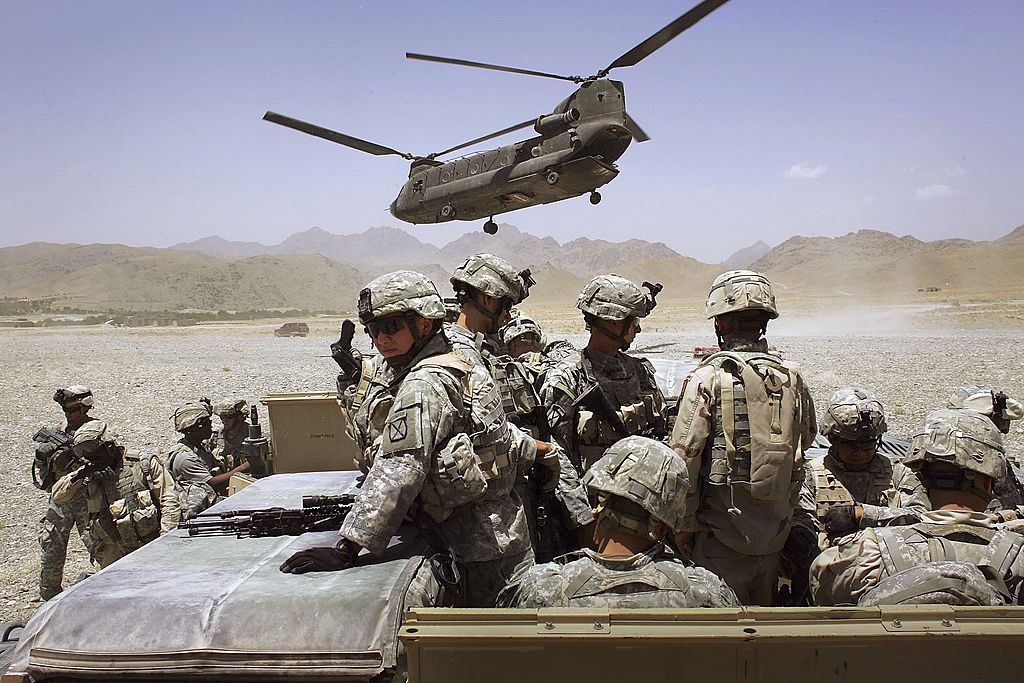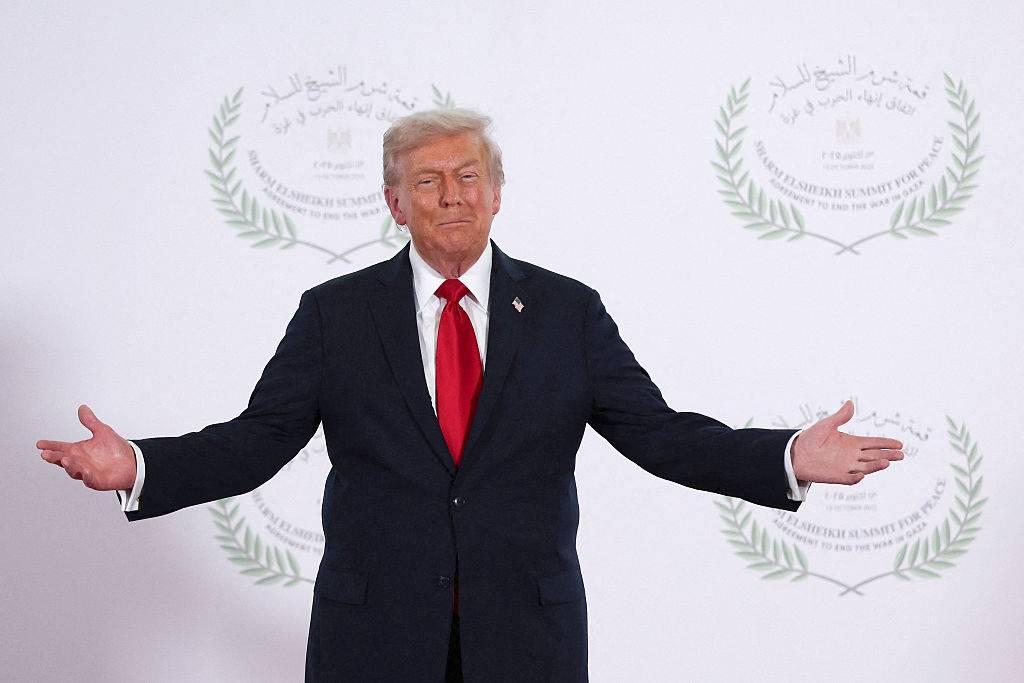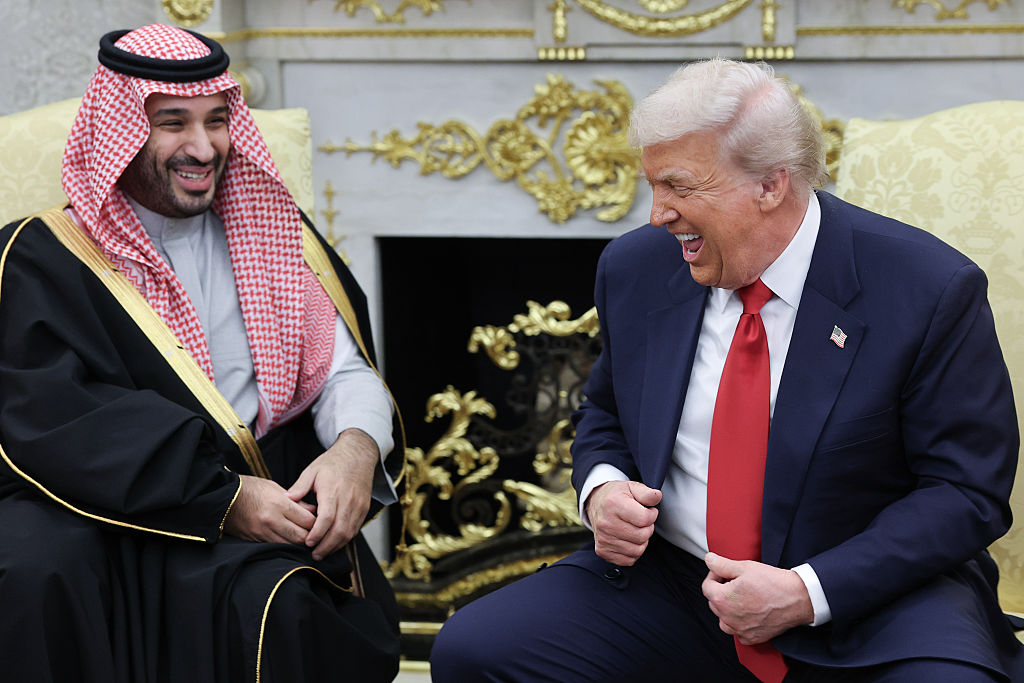When educated Americans think about war, they’re apt to think of it in ideological terms. Wars are fought between dictatorships and democracies and the goal is to establish one form of government or the other in the defeated opponent’s territory. That’s certainly been the way American policymakers have thought about the wars of this century and it was the framework during the Cold War as well, when the conflict was said to be, fundamentally, a clash of ideologies.
The French Revolution is probably the source of this concept, as the wars it set off were indeed largely about regime change, if not that alone. The French Revolution also gave rise to the first “cold war,” a struggle throughout Europe between liberal, more or less revolutionary, movements and reactionary forces attempting to save, or restore, the old order.
The United States, it’s worth noting, was a new-style, democratic regime, but one that kept European radicalism at arm’s length, especially once that radicalism took a turn toward socialism.
There’s ancient precedent for conceiving of war as a struggle between regimes, too, with the Peloponnesian war being the classic case. But the ancient world also supplies copious examples of a more basic form of war: the conquest of a land by a new people who throw out, enslave or kill off the former occupants. The past 200 years are rife with examples as well, from the American extirpation of Indians and conquest of Mexican territory to Adolf Hitler’s ambition to clear the lands to Germany’s east of any population that would resist colonization by the “Aryan race.”
The wars that destroyed the western Roman Empire were also population wars – indeed, these words are written in English, not a Romance or Celtic language, because those conquests did not simply substitute one form of government for another.
This framing has been a weakness of US foreign policy since the end of World War Two: this habit of seeing as ideological wars what the people we’re fighting understand as population wars. The strength of “anti-colonialist” movements everywhere is that they perceive their struggle in terms of native and foreigner, while the foreigners think of it in terms of their domestic political ideals. The exception proves the rule: anti-colonialism doesn’t succeed in Palestine because the Israelis see the conflict as one between peoples, just as their enemies do. Both sides are fighting for their homes and for land.
All this is a crude sketch, but it’s a reminder of the realities Americans must keep in mind as they think about foreign policy in the remaining three-quarters of the 21st century. If, for example, China represents the greatest threat to American security in the world today, what kind of war would we wind up fighting with them? As things stand, it would be another ideological war for us and a population war for them. Such mismatches, even against far weaker opponents than Beijing, have historically led to defeat for the US.
The Taiwanese might well see war with China as a war for their home as a people, of course. But that wouldn’t make the war any less ideological for America, and relying on a foreign people’s sense of home to give the United States an edge is a risky proposition. Ideological foreigners frequently have native allies, but if most of the power has to come from the foreigners their conception of the war is the one that will prevail on their side.
Educated Americans have very little capacity for self-criticism, unfortunately, which is not the same thing as a willingness to condemn their forefathers – that’s something they have in spades. Framing conflict in terms of principles rather than peoples is second nature to us, and so China is understood as a system competing directly with our own, as if we’re in a new Cold War or a continuation of the first.
China certainly wants to project power as far from its shores as it can, but the Chinese, communists though they may be, think about others in ethnic more than ideological terms. They know most human beings are not and never will be Chinese. Hence while we Americans (and westerners in general) dream of making the world just like us by making it consumerist, democratic and liberal, the Chinese invest their imperialist ambitions in methodically grinding away Tibetan and Uighur identity.
Chinese people will occupy Tibetan land and if the Uighurs can’t actually be made Chinese, they’ll at least cease to be Uighur. China is a diverse country, of course – but the Chinese see diversity as something to be tamed, not unleashed.
While Americans obsess about a Chinese “system,” other nations that think of the world in terms of rivalrous peoples are rising, with India and Turkey bidding to shape the rest of this century just as much as China might do.
Within the West, meanwhile, domestic politics is shifting away from old ideological categories and toward feelings about whether government serves foreign or native interests. The questions this provokes range from trade and economics to war and diplomacy to education and immigration.
At home and abroad, the question is no longer “which system is best?” but “whose land is this?” Or to put it another way, the question itself is who gets to answer the question.
America’s leadership class, in government and outside of it, has been slow to accept what’s happening, which has so far led to upheavals in politics at home. It will lead to greater and deadly upheavals in foreign affairs if the West’s well-credentialed smart set don’t wise up.
This article was originally published in The Spectator’s July 2025 World edition.


























Leave a Reply